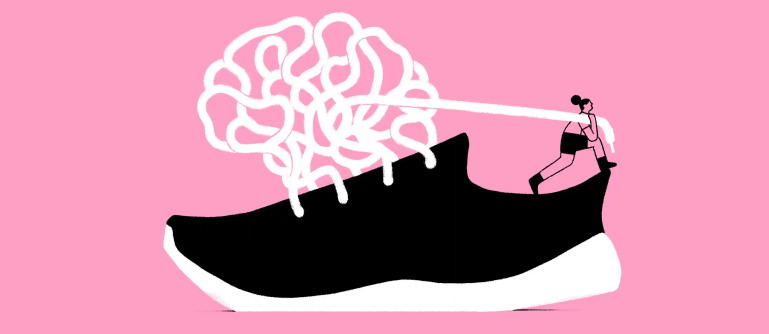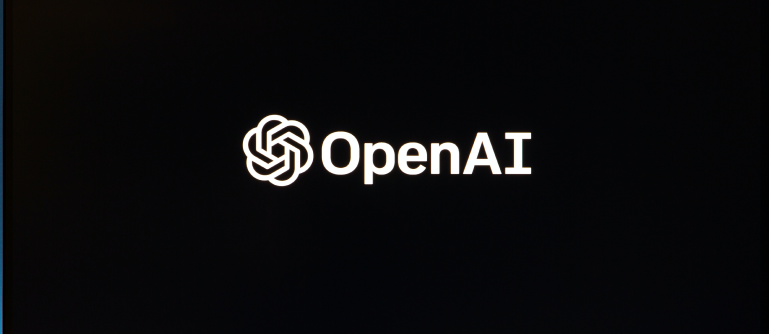- |
- |

Nurture your brain and promote creativity at work? Yes, please! Who wouldn’t want to tap into their inner genius and unleash a world of innovative ideas?
Whether you’re an artist, a writer, or a corporate executive, the key to unlocking your full creative potential is all about taking care of your brain.
From catching enough Zs to getting a hearing test done and moving your body, this month’s articles, curated by Isabel Silvis, offer plenty of ways to give your mind the TLC it deserves. So, let’s explore some interesting ways to boost mental performance in Super8 in March.
1. How to be creative on demand.

- Watch the full video here.
- Created by: Joseph Grenny.
- Contributed by: Daniel Banik.
According to bestselling author Joseph Grenny, creativity is learnable—not just something that certain lucky individuals are blessed with at birth. Joseph discovered that you can create conditions that invite creativity. He suggests anyone can make themselves more predictably creative by following the same principles. By merely articulating the problem at hand and then letting it sit in the back of your mind for some time, you allow your mind to stimulate creativity by letting your unconscious get to work on the problem. What then? Creativity will come to you, and when it does, be sure to focus on it. Respect these moments and capture thoughts as they come. If you ignore them, they might be hard to get back, if not impossible. These and other tips/principles are clearly explained in this brief but excellent video.
2. Don’t forget to floss: the science behind dementia and the four things you should do to prevent it.

- Read the full article here.
- Created by: Ian Sample.
- Contributed by: Isabel Silvis.
It’s no longer a novel idea that–with some intervention–the onset of dementia can be delayed. The most researched interventions are maintaining a healthy lifestyle, and focusing on exercise while keeping your brain mentally engaged. However, other, more interesting ways to look after your brain are emerging, which include looking after your hearing, dental health, and friends. The benefits of regular exercise cannot be overemphasised. Or as the article nicely phrases it, ‘a small mountain of work has linked physical exercise to better brain health’. The piece also suggests stretching your brain by keeping socially engaged and doing cognitively challenging jobs. This brings us to the surprising intervention that could have the biggest impact: preventing hearing loss. Hearing loss has a double whammy effect: less stimulation for the brain, as well as increased social isolation.
3. Why the most successful leaders create a psychologically safe workplace.

- Read the full article here.
- Created by: Kelly Lockwood Primus.
- Contributed by: Sarah El-Atm.
Creating a psychologically safe workplace can stimulate creativity among employees. When employees feel comfortable sharing their ideas and suggestions without fear of negative consequences, they are more likely to take risks and think outside the box. This leads to increased innovation, creativity, and collaboration, which in turn contributes to the success of leaders and their teams. In other words, if companies want to innovate, they need to have all the voices at the table willing to speak up and be heard. The only way to get there is to create a culture of psychological safety. The author explains that a psychologically safe workplace is one where employees feel comfortable expressing their ideas, opinions, and concerns without fear of negative consequences. This, in turn, leads to increased employee engagement and productivity, and ultimately, better business outcomes.
4. Automation is not the enemy.

- Read the full article here.
- Created by: Karl Groves.
- Contributed by: Tim Copland.
What is more liberating for your brain than automation? ‘Automation reduces human effort when performing time-intensive, monotonous tasks. Automation increases the predictability of output. Automation increases quality and accuracy.’ Karl Groves (self-proclaimed Web Accessibility Viking) clearly has had enough of the naysayers and has gone above and beyond to support his claim. This article is a response to the so-called ‘luddites’ who claim that ‘automated testing won’t solve web accessibility’. Karl introduces his case with a brief introduction of how far we have come as a human race and makes a pretty convincing argument for why the idea of opposing automation for accessibility testing is ‘absurd’. Instead, we should celebrate it. The most obvious reasoning is that in comparison to manual testing, it saves heaps of time. And of course, it comes with the caveat that it cannot test for every possible accessibility challenge. However, that does not mean that we should not look to automation to carry our burdens and free up the mental capacity to focus on tasks that are more stimulating. He goes on to make some predictions of what the future holds in this space, and as a developer myself, I’m more than a little excited.
5. How ‘should’ makes us stupid—and how to get smart again.

- Read the full article here.
- Created by: Jane Elliott.
- Contributed by: Emily Mahady.
The word ‘should’ can cause people to turn off the part of their brain that helps them achieve what they need to do. This is because the word creates a deficit mindset in people who measure themselves against a set of idealised expectations, feeling like they have failed when they don’t reach their goals. The reason for this mindset is that people who use ‘should’ often add it to their list of things to do, along with other self-criticisms, rather than addressing the problem. Using ‘should’ in this way can lead to a lack of problem-solving skills, making it difficult to find the reason for the problem. However, there is a way to reverse this problem. The De-Shouldifier is a method that requires people to rephrase the thing they think they should do as something they want to do. By identifying the results that would come from acting on the change, people can connect with their desire for this change and the specific reasons they want it. The De-Shouldifier encourages people to find the reasons behind their actions and work on addressing them.
6. GPT-4 and professional benchmarks: the wrong answer to the wrong question.

- Read the full article here.
- Created by: Arvind Narayanan and Sayash Kapoor.
- Contributed by: Seb Griffiths.
Can we reliably share our mental load with AI? OpenAI’s latest language model, GPT-4, has reportedly scored highly on professional licensing exams and other standardised tests. However, these results tell us very little about how the model will perform when confronted with real-world problems that professionals face. Additionally, GPT-4 has been found to have memorised solutions from its training set, which raises concerns about its ability to reason and solve problems on its own. The inclusion of such exam questions in the training corpus may result in an inflated estimate of real-world usefulness, and professional exams are not a valid way to compare human capabilities with bots. So yes and no, we can reliably use it to automate “mundane and low-stakes yet laborious tasks”, but when there’s a greater level of risk involved, we still need to stretch our squishy brains.
7. The link between sleep and job performance.

- Read the full article here.
- Created by: Rob Newsom.
- Contributed by: Janine Dickins.
In honour of world sleep day on Friday, March 17, 2023, I’d like to remind everyone of the importance of being horizontal. It shouldn’t come as a surprise how important sleep is for mental performance and healthy aging. Lack of sleep is no longer a badge of honour. Just like you wouldn’t brag about skipping a workout, it’s not cool to brag about missing sleep. Everyone loses when you don’t get your snoozes. Sleep and work are closely interconnected, and the quality of one affects the other. Lack of sleep can cause tiredness, decreased creativity, reduced focus, and impaired job performance. Chronic sleep deprivation can lead to more serious health problems such as obesity, heart disease, cognitive decline, and dementia. The economic impact of sleep deprivation is staggering, costing employers billions of dollars in lost productivity and healthcare costs related to fatigue. To improve job performance, it is important to prioritise consistent, quality sleep by creating a sleep-friendly environment, maintaining a regular sleep schedule, developing a bedtime routine, and eliminating daytime habits that interfere with sleep.
8. The end of Front-End Development.

- Read the full article here.
- Created by: Joshua Comeau.
- Contributed by: Kurt Smith.
Challenging yourself mentally by having a cognitively challenging job may help keep your brain young, but is AI threatening my job? Joshua Cormea thinks probably not. People have been worried about web developers losing their jobs to AI tools for a long time, but don’t fret just yet. These AI tools don’t have a way to make sure their responses are accurate, which could cause problems for users. Plus, what happens if there are security vulnerabilities? Who’s responsible when things go south? It seems like there are some tough problems to solve before AI takes over completely. Instead, tools like GPT-4 could be integrated into developer tooling to make skilled developers even more amazing. We don’t need to worry about developers becoming extinct, just like carpenters didn’t disappear because of power tools. If developers become more productive, there will be even more work for them to do. AI can help them work faster and smarter, and professionals will find ways to use this tech to increase their productivity and value.
More Articles
Up for some more?
Get your monthly fix of August happenings and our curated Super8 delivered straight to your inbox.
Thanks for signing up.
Stay tuned, the next one isn't far away.
Return to the blog.
